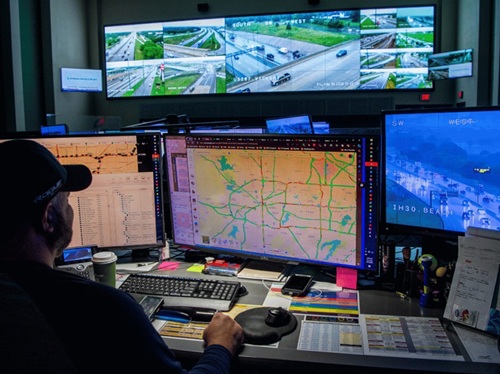The Massachusetts Department of Transportation and Massachusetts Bay Transportation Authority recently issued a plan to reconfigure the transit bus network serving the Greater Boston urban area.
[Above photo by MBTA]
The redesign completely re-imagines the bus network to reflect the travel needs of the region today, creating a better experience for current and future riders while prioritizing equity and the needs of those who depend on frequent, reliable bus service – including the creation of “more equitable service” to help enable future service growth.

“We are pleased MBTA continues to take steps to improve bus service for customers by looking at every route and getting input from riders as part of Bus Network Redesign,” said MassDOT Secretary and CEO Jamey Tesler in a statement.
“These are transformative changes for bus riders that include new or slightly altered bus routes to take the public where they need to go and which offer high frequency service every 15 minutes on weekdays,” he added. “The Bus Network Redesign project has been a collaborative process involving the MBTA and MassDOT, which puts the customer first, and continues to build upon our efforts to invest in better, more equitable transit.”
“Our draft network map has been redesigned to provide more equitable service that best meets the needs of where riders live, work, and travel now and in the future,” noted MBTA General Manager Steve Poftak.

“We aim to reinvigorate the whole bus system through a redesign of our bus routes, [adding] 25 percent more service on weekdays and even more on weekends, and increased bus service frequency for hundreds of thousands of riders,” he said. “But we can’t do it alone – municipal partnerships will be critical for success, and we’ll continue to shape our proposal based on input we receive from the public.
MBTA noted that the Greater Boston area has “substantially evolved” with new employment districts, shifting demographics, and traffic increases while the bus network has stayed largely the same.
As transit is essential to the region’s economy and bus service serves the MBTA’s most transit-dependent populations, the agency said it “essential” that its bus network adapts to change.
An initiative of the Better Bus Project, MassDOT and the MBTA describe the Bus Network Redesign project as a “once-in-a-generation opportunity” to make bold improvements to the MBTA’s bus network for the people that depend on it most.
The network redesign includes:
- An increase in bus service by 25 percent overall with 70 percent more bus service on weekends.
- Bringing 275,000 additional residents close to the newly proposed high frequency service (15 minutes or less between buses all-day, seven days a week).
- Providing over 100,000 residents of color access to high frequency service and 40,000 low-income households would gain access to high frequency service.
- Giving over 200,000 more residents access to fast and frequent service to the Longwood Medical Area, over 180,000 to the South Boston Waterfront, over 50,000 to Back Bay, and over 58,000 to Kendall Square.
The agency plans to hold open houses at MBTA stations and community meetings throughout the months of May, June, and July, with public comments presented both at the open houses and online reviewed and incorporated into a final network draft MBTA expects to share with the public in the fall of 2022.
Implementation of this final network will take place in phases over five years starting as early as the spring of 2023 with each phase likely rolled out by geography, operator availability, transit priority, and other operating requirements.
 States
States
TxDOT Updates Artificial Intelligence Strategic Plan
February 27, 2026 States
States

